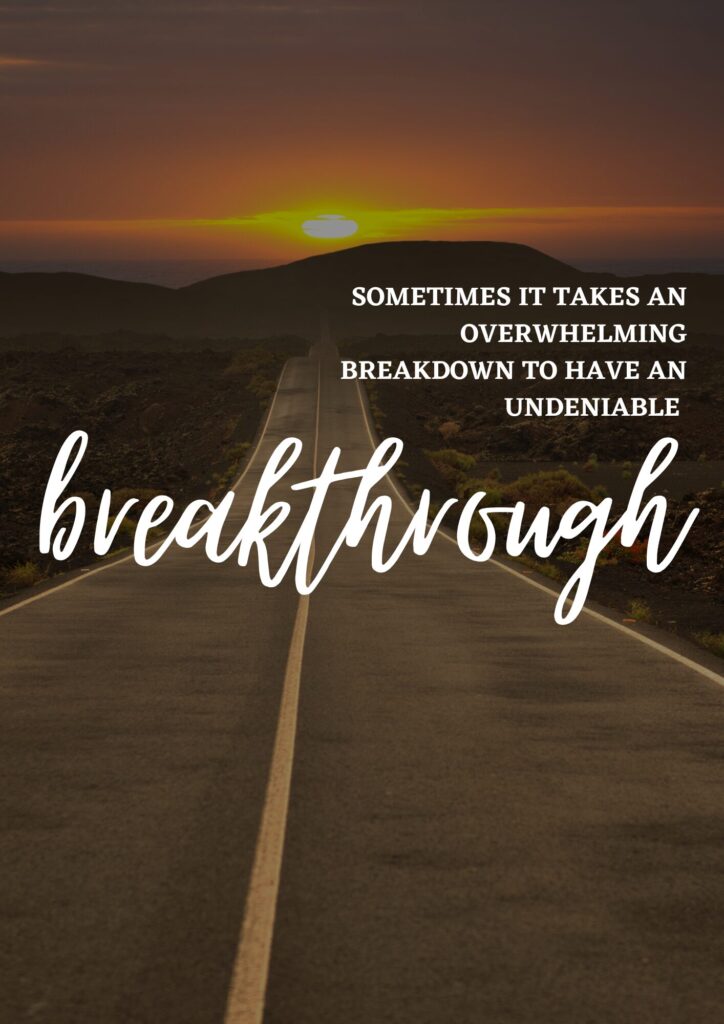Today I want to write about abuse, not the one that comes with fists and screams, but the sneaky, subtle kind. You know, the kind that doesn’t leave bruises — just years of therapy. It’s the kind that makes you wonder why you feel like crap even when nothing obvious happened. Or why your innocent little comment suddenly triggers an emotional earthquake somewhere else — and oddly enough, you feel relieved. The examples I’ll share here barely scratch the surface of violent communication. But because this issue is so vast and sneaky, it is important to start somewhere, anywhere.
“..subtle abuse hides behind words that seem kind”
One of the most common toxic traits is deliberately making someone feel bad about themselves. Take physical appearance, for example. If the abuse is obvious, it might sound like, “You look stupid.” But subtle abuse hides behind words that seem kind. Take the line: “I never say if I don’t like something about my partner’s body.” On the surface, it sounds like discretion. But what it really says is: “There’s something about you I quietly judge, but I won’t tell you what.” Now you’re stuck doing mental gymnastics in the shower, trying to guess which part of you is the aesthetic offense. It’s not tenderness, and that’s not compassion — that’s manipulation with a polite handshake.
“If you were never taught how to express anger safely, the anger didn’t go away. It is still there, inside you, and it still finds ways to come out.”
Passive-aggressive communication is tricky. Sometimes, it comes from an emotional lockdown around anger. If you were never taught how to express anger safely, the anger didn’t go away. It is still there, inside you, and it still finds ways to come out. Sometimes it’s unconscious — other times, it’s intentional harm disguised as restraint. But the outcome is the same: quiet, invisible damage that’s hard to name but impossible to ignore.
Hurtful ways
Sarcasm is one flavor of passive aggression. On its own, it’s not always abusive — it depends on the recipe. Like when you and your best friend roast each other for fun, and nobody leaves the room wondering if they’re secretly hated. Safe, consensual, and oddly fun.
But sarcasm stops being playful when it’s used to sneak in insults wrapped in wit — especially if it’s designed to praise yourself while taking a jab at someone else. If the goal is to make someone feel small, and it gives you satisfaction when they do — it’s not just passive aggression. That’s a game of emotional dodgeball where only one person knows the rules. It’s abuse dressed up in cleverness.
..one of the most common tools in abusive communication: praise with a hidden sting.
Let me give you an example from my own life.
I have light eyes that shift between blue and grey, depending on the weather or what I’m wearing. A person I was in toxic communication with used to make the same joke over and over again:
“Did you know people with blue eyes have water for brains?”
He’d laugh hysterically. Every. Single. Time.
It wasn’t a one-time thing — more like a recurring comedy special where the punchline was always me.
Another example — and this one might hit home for some — is when someone says:
“I don’t care how you dress. My friends might think it’s weird that you’re always dressed like this, but I don’t care if I really like a person. I mean, I have options — people flirt with me all the time — but I choose this, because I truly like you.” Let’s break that down.
At first glance, it sounds like a compliment, right? “I don’t care how you look, I still choose you.” But under that… is a very loud, very clear “I don’t actually like how you look.” And not only that — they expect a round of applause for “tolerating” you anyway. That’s not love. That’s just criticism in a love song costume. It’s belittling. It plants doubt. It makes you feel like you should be grateful that someone is “putting up with you.” And that’s one of the most common tools in abusive communication: praise with a hidden sting. Sugar-coated insults that slowly rot your sense of self. According to Dr. Lisa Firestone, a clinical psychologist known for her research on emotional abuse, this kind of backhanded praise is a classic manipulation tactic that undermines your sense of self-worth while pretending to build it. It’s a subtle form of control, where the abuser’s “compliments” come with an invisible leash.
If you’re reading this and thinking, “Wait, I’ve said things like that,”
pause here. It means you’ve got work to do, not that you’re doomed.
It could be time to ask yourself:
Why did I say it?
What was I hoping they’d feel?
And was that fair?
We’re going to unpack this more in the next part — because emotional belittling doesn’t always sound like shouting. Sometimes, it sounds like “sweet honesty.” And if it comes with strings attached, it’s not kindness — it’s control in costume. And nobody really owes gratitude to someone who disguises cruelty as care.
“Because I refuse to accept your truth, I’m going to convince you it’s not really yours.”
When your sense of self feels better by putting someone else down, you start belittling others — often without even realizing it. This is a subtle form of abuse because it dismisses other people’s feelings, experiences, and worth to boost your own. And when someone belittles you, it seems like their truth matters, but yours doesn’t.
For example, someone might say:
“I’ve traveled the world, so I know this — all men are pigs, all women are manipulative bitches, and you shouldn’t trust anyone. You must be stupid not to see it.”
What’s the message behind this? It says, “There’s only one truth — mine.” It belittles anyone who thinks differently, making it clear that their experience doesn’t count. And throwing ‘stupid’ around to silence disagreement? That’s not just insulting—it’s emotional sabotage.
In other words: “You either think exactly like me, or you’re dumb.” This kind of talk isn’t just mean — it’s controlling, because it leaves no room for you to have your own thoughts.
Another example sounds like this: “I don’t think you really believe these things. Maybe someone told you, or you just heard it somewhere, and now you think you feel that way.” What’s really going on here? The hidden message is: “Because I refuse to accept your truth, I’m going to convince you it’s not really yours.”
Did you catch the idealization—“I only accept you as I want you to be”—and the control—“I’ll shape how you think and feel”? This is textbook emotional invalidation. According to research by psychologist Dr. John Gottman, one of the leading experts on relationships, invalidating a partner’s feelings is one of the strongest predictors of relationship distress and emotional abuse. And hey, if you grew up in a family where emotional conversations were either weaponized or just… didn’t happen, this might feel almost normal. But make no mistake: insulting, belittling, controlling, and idealizing each other like this is a form of violent communication.
The power of words
Some psychological terms have really made it into the mainstream—“toxic,” “narcissist,” and lately, “gaslighting” seems to be getting its fifteen minutes of fame (again). On the one hand, it’s genuinely encouraging. Mental health is finally being talked about at dinner tables and on TikTok, and more people are seeking help when they’re struggling. That’s huge. It means the stigma is cracking—maybe even crumbling a little.
On the other hand, when scientific language goes viral, it often loses something in translation. Suddenly, every annoying ex is a narcissist, every disagreement is gaslighting, and being human occasionally makes you “toxic.” The nuance disappears, the terms get tossed around like confetti, and—ironically—it can create more misunderstanding and stigma instead of less.
If you Google gaslighting you’ll probably stumble on some truly extreme examples—think full-blown psychological warfare. But today, we’re talking about the subtler stuff. The kind that doesn’t scream abuse but quietly chips away at your sense of reality.
One sneaky form of gaslighting? When someone enlists other people—real or imaginary—to discredit your truth. It might sound like:
- “I told my friend what you said, and she was like, ‘No way, he seemed so nice!’”
- “Everyone thinks this is normal. Just ask around.”
Congratulations — you’ve just been outvoted by people you’ve never met.
They summon the ghost of public opinion to haunt your sense of reality. It’s not a debate—it’s a tactic. Social psychologists call this “social proof,” where people rely on perceived consensus to validate their beliefs, even when it’s manipulated to isolate you (Cialdini, 2007). By making it seem like the whole world agrees with them, they isolate you without ever raising their voice.
And sometimes, gaslighting doesn’t stop at the front door. An abuser might complain to your own friends about your behavior, hoping they’ll “set you straight” and take their side. Suddenly, you’re not only questioning yourself — you’re also losing the allies who could help you get out. This tactic exploits social networks to deepen control, a strategy discussed in domestic abuse research as “social isolation” (Stark, 2007).
Games we play
When your self-worth depends on constant validation, every interaction becomes a stage. You’re not just talking—you’re performing. You’re the kindest, the hottest, the smartest, the most unbothered person in the room. A walking highlight reel.
But the spotlight’s exhausting. And the script? It never accounts for real life.
There will always be someone better at something. Someone more loved. More admired. Someone who doesn’t play the game—and still wins.
The real danger? People who speak freely. People who ask questions. People who don’t buy tickets to the show. That’s where the panic sets in—because if your whole identity is a performance, any unscripted moment becomes a threat. Conflict isn’t just likely. It’s inevitable.
“You rewrite the scene to protect your self-image, even if it costs the other person their reality.”
Imagine how frustrating it must be when your partner won’t play along or refuses to fit into the script. If your self-worth is tied to this performance, you’ll use every tool—consciously or not—to make the other person match the role you’ve written for them.
The painful irony? You’re working so hard to not be the villain that you don’t notice when you’ve become one. After all, a controlling person isn’t part of the identity you’re performing—so the control, manipulation, or pressure you’re using doesn’t “count” in your eyes.
One common tactic in this dynamic is emotional projection. Let’s say you feel jealous, but jealousy doesn’t align with the character you’re playing: the chill, kind, evolved partner. You can’t let yourself consciously feel that emotion—so you hand it to someone else. That behavior lines up with classic psychological research showing projection is a defense mechanism people use to unconsciously push unwanted feelings away — like putting them in someone else’s baggage (Cramer, 2000). Now suddenly, they’re the jealous one. Or insecure. Or demanding. You rewrite the scene to protect your self-image, even if it costs the other person their reality. So when you say “I think you’re just a very jealous person,” you’re not describing them—you’re outsourcing a feeling you won’t admit having.
“Facing your insecurities is a part of being secure”
Abusive communication often hides a quiet but relentless hunger for control. That control isn’t always loud or obvious—it can look like small corrections, constant “suggestions,” or subtle pressure to act, speak, or look a certain way.
It stems from a deep need to shape everyone and everything around them to keep the illusion intact. When your sense of self-worth hangs by the threads of an identity performance, maintaining the show becomes a survival strategy.
In this mindset, it doesn’t feel wrong to demand others to behave a certain way—it feels necessary. And when the “bad” or “ugly” parts of yourself get projected onto someone else, it brings relief. Like handing off a burning coal, you get to feel clean, calm, and right again.
It’s a distorted loop: If they’re the wrong one, that must mean I’m the right one.
Psychologist Erving Goffman described “identity performance” as the way people act out roles to maintain an image they believe others expect of them. For someone whose self-worth depends on that performance, controlling others’ behavior can feel less like manipulation and more like self-preservation. Research on psychological projection shows that offloading unwanted traits onto others is a common defense mechanism—effective in the short term, but often damaging to relationships in the long run (Verywell Health, 2024; ScienceRise: Pedagogical Education, 2018).
Facing your insecurities is a part of being secure. When you don’t have the tools to face them, and reality constantly forces you into it – having control might bring an illusion of security. Thus control can feel like the equivalent of security when there are no safe communication options. Research shows that people who experience psychological control—like monitoring or manipulation—often develop a strong need to regain safety through control, even if it’s just an illusion (Soenens & Vansteenkiste, 2010).
One way to gain that control is by collecting information: who you talk to, where you go, what you do, and especially, the more intimate or painful details of your past. Not out of care — but out of strategy. Knowledge becomes a currency of power, not connection. Psychological theories describe this as “knowledge as power,” where intimate information becomes currency to maintain control and suppress vulnerability (Kaufman & Uhlenberg, 2000). When safety feels unreachable, control over others’ behavior and secrets can feel like the only option to survive emotionally.
When control becomes the main game, boundaries start to look more like suggestions—ones you’re expected to ignore. Sometimes, the demand is obvious, like “Show me your message history.” Other times, it’s wrapped up in a friendly bow:
“We don’t need secrets between us. Don’t you trust me?”
Before you know it, someone you barely know is digging for your personal info like it’s juicy gossip—asking things like, “Tell me your traumas,” or “What’s the worst thing that ever happened to you?”
And then there’s the micromanaging of your daily life:
“When we talk, I want you to tell me how your day went, what you did, what you ate, where you went, who you hung out with—just the usual stuff.”
Welcome to the subtle art of control disguised as caring.
There’s nothing wrong with those phrases on their own—“We don’t need secrets” or “Tell me about your day” sound pretty harmless, right? But here’s the catch: in certain contexts, they’re less about connection and more about control. That’s the sneaky part about subtle emotional abuse—some words or phrases aren’t abusive by themselves. But in a specific context, they’re like shiny apples that come with a hidden worm.
This also messes with how your friends might react when you open up about feeling hurt. You might say, “That phrase made me feel bad, but I can’t figure out why.” And your friend, who uses those phrases in a healthy way, might say, “Nah, that’s fine. That’s normal.” But here’s the thing—they don’t have your context. You do. And that’s the tricky part of subtle abuse: it lives in the context, the subtext, the “why” behind the words. It’s what makes understanding and compassion a lot harder to come by.
Psychologists call this the context effect—how people’s interpretation of words depends heavily on the situation, not just the words themselves. A phrase meant as comforting in one setting could feel suffocating in another (Nikolić, 2010). Research on hurtful communication also shows that the same comment can be interpreted as helpful or harmful depending on cues like tone, timing, and history (Journal of Hurtful Communication, 2025)
In other words: Without your backstory, even well-meaning friends might genuinely believe you’re overreacting—or worse, missing the deeper injury hidden in plain sight.

Blame and Projection
When you’re wrestling with your own insecurities but have only a few emotional tools in your toolbox, it feels way easier to just not face them at all. So you dive headfirst into a game where your flaws don’t exist—because who wants to admit they’re a hot mess inside? You praise yourself, build up your image, act like you’re winning at life, and voilà—temporary escape from that gnawing feeling of worthlessness.
But here’s the kicker: in mental health, the harder you run from the problem, the more it chases you down. The bigger the show you put on to look “great,” the further you stray from actually dealing with what’s going on inside.
“Real strength means dropping the act, owning your issues, and dealing with the pain head-on”
Here’s the truth—if you’re busy running away from your own feelings, you won’t have much energy left to be kind or understanding to others. It’s like trying to host a cheerful tea party in the middle of a dumpster fire — sure, keep pretending everything’s fine while the whole thing burns down around you. Spoiler: the smoke’s choking everyone, especially you. And guess what? The people you surround yourself with often end up cast as extras in your performance—keeping the act alive so you never have to face the real script. Here’s the hard truth: no one benefits from you staying stuck in this performance. Real strength means dropping the act, owning your issues, and dealing with the pain head-on. Because as long as you keep pretending, you’re just making the damage worse—for yourself and everyone around you.
Life’s not a scripted show, no matter how much you try to cast it that way. There will always be someone or something that messes up your performance. Like those annoyingly happy, successful people who remind you of what you want to be but aren’t—yet. Instead of clapping for them, you might feel a little green with envy and think, “Hey, maybe if I bring them down a peg or two, I’ll feel better about myself.” Spoiler: It only works for about five minutes before the next plot twist crashes the party.
If you spend all your time covering for your demons, you’re basically running a never-ending cover-up show. Spoiler #2: there’s no energy left to develop the emotional smarts you need for real, healthy communication. And without that, the drama just keeps rolling.
When you don’t have healthy tools to handle your emotions, those feelings don’t just vanish—they have to land somewhere. For someone who hasn’t mastered responsible communication, other people often become the emotional dumping ground. Spoiler alert: that’s unfair and straight-up abusive.
Another classic move from the insecure playbook? Blaming your feelings on someone else. Like saying, “I didn’t know why I felt awful… then I saw your sad face and boom—my whole evening was ruined.” Suddenly, your emotional mess becomes their problem. Studies show that people with poor emotional self-regulation (think: lacking coping tools) are significantly more prone to blame others for their own internal mess—especially in moments of stress or guilt (Individual Differences in Self-Projection, 2022).
“It is not how it looks – it is how it feels. “
If you are on the receiving end, being constantly blamed, your intentions twisted, or your feelings dismissed, it chips away at your sense of reality. Over time, you stop trusting your own thoughts. You start questioning your values, your choices, even your emotional reactions. “They say they’ve done nothing wrong… maybe I’m the problem?” That’s not overthinking — that’s a normal response to abnormal treatment.See, when someone builds their entire self-worth on how things look, they’ll go to great lengths to protect the image. They’ll polish the scene, pose for the emotional group photo, and crop out anything that doesn’t match the aesthetic. Meanwhile, you’re left in the corner wondering why the picture doesn’t feel like your life.But feelings don’t follow stage directions. They don’t care about your lighting, angles, or whether everyone is smiling. Feelings don’t need to make sense to be real. They just are. And if you ignore them, they don’t go away — they rot under the surface. The only way out is through—and pretending everything “looks fine” only deepens the mess. So whether you’re the one hurting or the one being hurt, here’s the line worth remembering:
It’s not how it looks. It’s how it feels.
What can help to recover from a covertly abusive relationship?
Whether you were the one being hurt, doing the hurting, or both (as many of us are at different points), one of the most important steps toward healing is this: start naming things for what they are.
In covert abuse, harm hides behind politeness. Pain is wrapped in “just kidding.” Cruelty wears a smile. And after enough of that, even your own emotions can start to feel… suspicious.
That’s why writing it down—exactly what was said, what was done, and how it made you feel—can be so powerful. No filters. No justifications. No “maybe it wasn’t that bad.” Just name it.
Naming your experiences brings them back into reality. And when you’ve spent a long time doubting your own perceptions, regaining a sense of what’s real is more healing than it sounds.
Once you start naming harmful communication for what it is—shaming, criticizing, gaslighting, blaming, belittling—you can begin to loosen its grip.
Another step toward healing is learning better ways to communicate. This might sound simple, but it’s powerful: go back to the moments that felt wrong. Look at the words that were said. Ask yourself: “Was this said to shed light—or to cast a shadow? “Was this said to connect—or to control? “Was this truth—or just a weapon shaped like one?”
You can do this with the things you said too. If you lashed out or shut down, don’t just shame yourself for it. Rewrite it. Try out a different response. Practice being the version of you who communicates with clarity and care, even when you’re upset.
Whether you were on the receiving end or dishing it out (or both), you were shaped by the communication you saw and learned. And maybe no one ever showed you anything healthier. That’s not your fault. But learning better patterns now? That’s your power.
Before we wrap up, here’s something important:
If you are trapped in emotional or domestic abuse, there’s a simple, silent way to ask for help — the universal “help” hand sign. You hold your hand up, palm out, tuck your thumb in, then fold your fingers down over it. It’s discreet and can be shown during a video call, in a crowded cafe, or anywhere without saying a word. It’s like a secret handshake for “I’m in trouble but can’t say it out loud.” Why does this matter? Because sometimes, words get stuck, or saying “help” out loud isn’t safe. Studies show that discreet signals can increase the chances of timely intervention and safety in abusive situations (McDonnell et al., 2021).
Teaching this sign is a small but powerful step we can all take to support each other and break the silence around abuse. It’s a small but mighty act of solidarity. A simple, silent way to break the silence and say, “I see you, and help is here.”
Ever realized that emotional abuse is basically the world’s worst group project?
You’re stuck juggling roles — sometimes the victim, sometimes the villain, often both — and nobody’s getting a gold star.
If you’ve managed to survive this disaster without losing your mind (or your last shred of dignity), please, share your secret hacks. Because let’s face it, we’re all just amateurs trying not to mess up the mess any further.
Every brutal truth you spill is like a spotlight on the circus we’re trapped in — maybe one day we’ll all figure out how to exit stage left before the whole tent collapses.
So come on, regale us with your tales of emotional warfare. We’re here, popcorn ready, and desperate for a little hope.
Sources & Further Reading
- Robert Cialdini – Influence: The Psychology of Persuasion
- Paul Cramer – “Defense Mechanisms in Psychology: From Freud to Contemporary Research”
- Lisa Firestone – The Fantasy Bond: Structure of Psychological Defenses
- Lisa Firestone – “Emotional Abuse: The Invisible Leash” (PsychAlive)
- Lisa Firestone – “Understanding and Overcoming Emotional Abuse” (PsychAlive)
- Lisa Firestone – “The Destructive Cycle of Criticism and Self-Criticism” (PsychAlive)
- John Gottman – Why Marriages Succeed or Fail
- John Gottman & Robert Levenson – “Marital Processes of Transition and Health: A Longitudinal Study”
- John Gottman & Nan Silver – The Seven Principles for Making Marriage Work
- Gershen Kaufman & Lev Raphael – The Psychology of Shame
- Kelly McDonnell, Kimberly Kennerly & Angela Gaskins – “Nonverbal Cues and Safety Planning for Domestic Abuse Survivors” (Journal of Interpersonal Violence)
- Danko Nikolić – “Contextual Effects on Word Interpretation”
- “Psychological Projection: What It Is, Examples, and How to Deal With It” (Verywell Mind)
- “Psychological Projection as a Defense Mechanism in the Educational Process”
- Bart Soenens & Maarten Vansteenkiste – “When Is Parental Psychological Control a Problem?” (Journal of Family Psychology)
- Evan Stark – Coercive Control: How Men Entrap Women in Personal Life
- “Individual Differences in Self-Projection” (2022)
- Journal of Hurtful Communication (2025)




